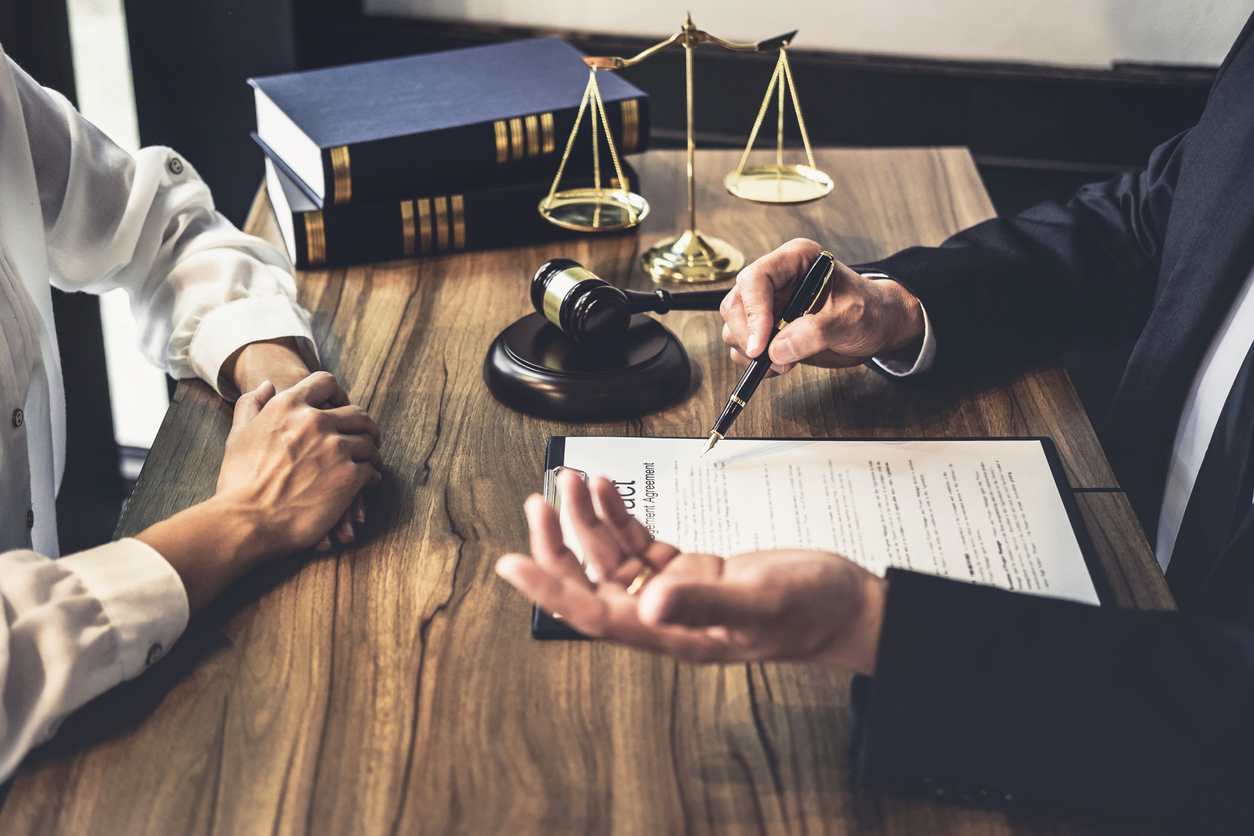July 16, 2025 | Personal Injury

You’ve probably seen the word “Esquire” after a lawyer’s name. It usually appears on firm websites, emails, or business cards. In the legal world, it marks someone with a valid law license. It also shows that the lawyer meets all the requirements for practicing in that state.
The title doesn’t just fill space; it signals professional credibility.
History Behind the Title
The word “esquire” goes back to medieval England. Back then, “esquire” referred to young men from landed families who trained for knighthood. They carried armor, rode into battle, and ranked just below knights. In time, the term moved away from the battlefield and into professional life. By the 1300s, people started using it to show social rank or legal knowledge.
As the legal system evolved, so did the meaning. In the U.S., bar associations began to oversee the legal profession. They created exams, codes of conduct, and education standards. Those who passed became attorneys, and the title “esquire” stuck as a mark of that achievement.
Use of Esquire in Law
Today, “Esquire” shows that a lawyer holds a valid license and stays in good standing with the state bar. It’s not a claim to nobility. It doesn’t give special rights. It simply confirms that the person has earned the trust to practice law.
Only licensed attorneys may use the title. Each state sets rules for bar admission, but most follow a similar process. The person must graduate from an accredited law school, pass the bar exam, and submit a formal application. Background checks and ethical reviews often follow. Once admitted, the lawyer may use “Esq.” as a professional mark.
The title applies to lawyers in all areas of practice. A criminal defense attorney may use it. So may a corporate counsel, estate lawyer, or personal injury litigator. The title crosses practice areas. What matters is the license, not the legal focus.
Unauthorized use creates problems. People without a license cannot claim the title. If someone misuses it, they risk penalties. State bar associations treat that as a serious offense. False use may lead to fines, disbarment, or civil suits.
Differences Between Esquire and Lawyer
Not every lawyer holds the title of esquire. A law degree alone does not give someone that right. The person must also pass the bar exam and meet all state requirements. Law students or graduates who skip the licensing process cannot call themselves esquires.
The term “lawyer” refers to someone trained in law. It covers anyone who completed law school, whether or not they passed the bar. “Esquire,” on the other hand, shows that the person moved beyond school and gained admission to the legal profession.
The state bar grants the license. That distinction matters, especially in legal disputes. Clients need to know who has the authority to represent them in court or negotiate settlements.
Using “esquire” confirms legal readiness. The word reflects real credentials, not just academic work. It tells clients that the person can advocate, draft filings, and interpret laws in an official capacity.
Contact Our Personal Injury Law Firm in Florida
If you’ve been injured in an accident, please contact our experienced personal injury lawyers at Graves Thomas Injury Law Group to schedule a free consultation today. We have three convenient locations in Florida, including Vero Beach, St. Petersburg, and Port St. Lucie.
Graves Thomas Injury Law Group – Vero Beach
2651 20th St
Vero Beach, FL 32960
(772) 758-5735
Graves Thomas Injury Law Group – St. Petersburg
200 Central Ave Suite 304
St. Petersburg, FL 33701
(772) 569-8155
Graves Thomas Injury Law Group – Port St. Lucie
10805 SW Tradition Square Unit 024A
Port St. Lucie, FL 34987
(772) 617-8814
